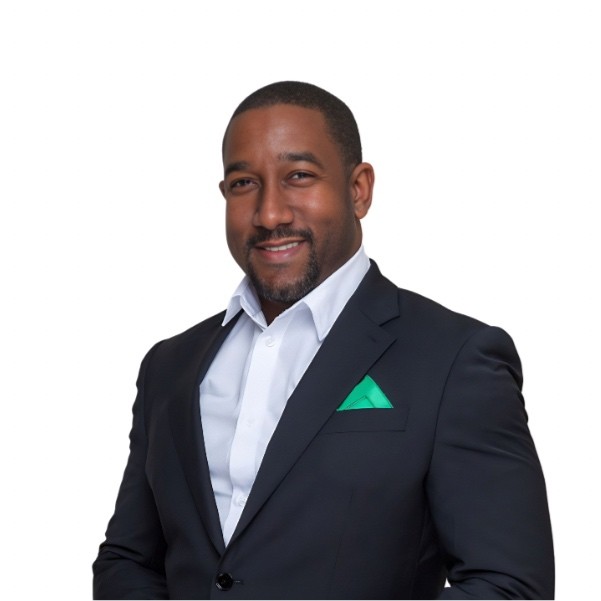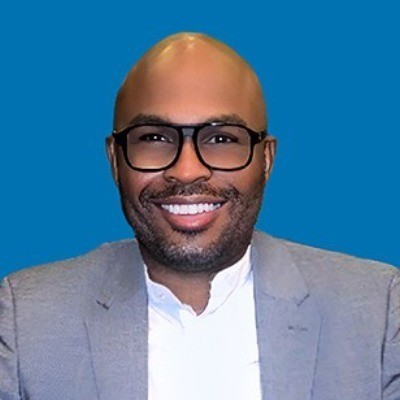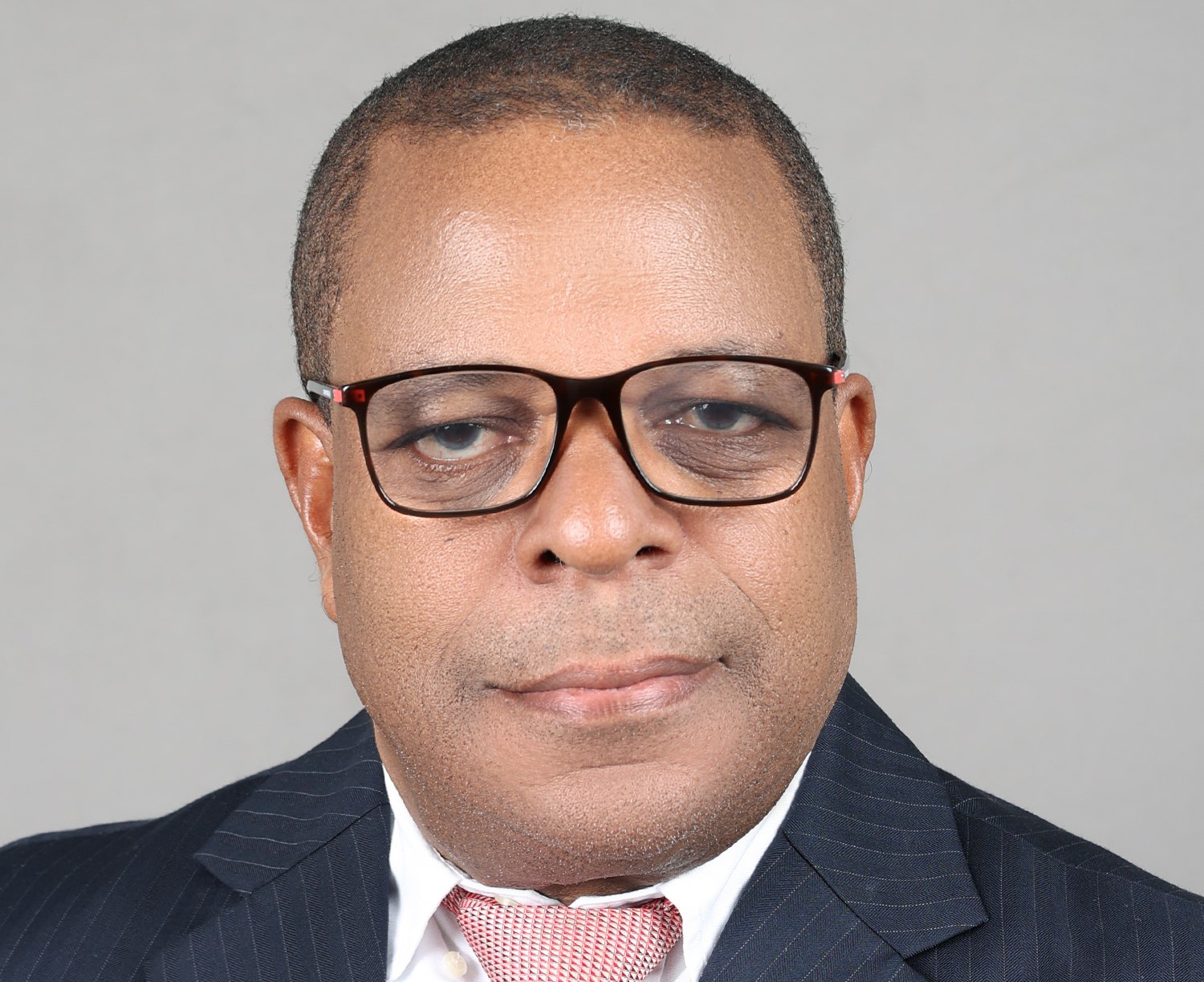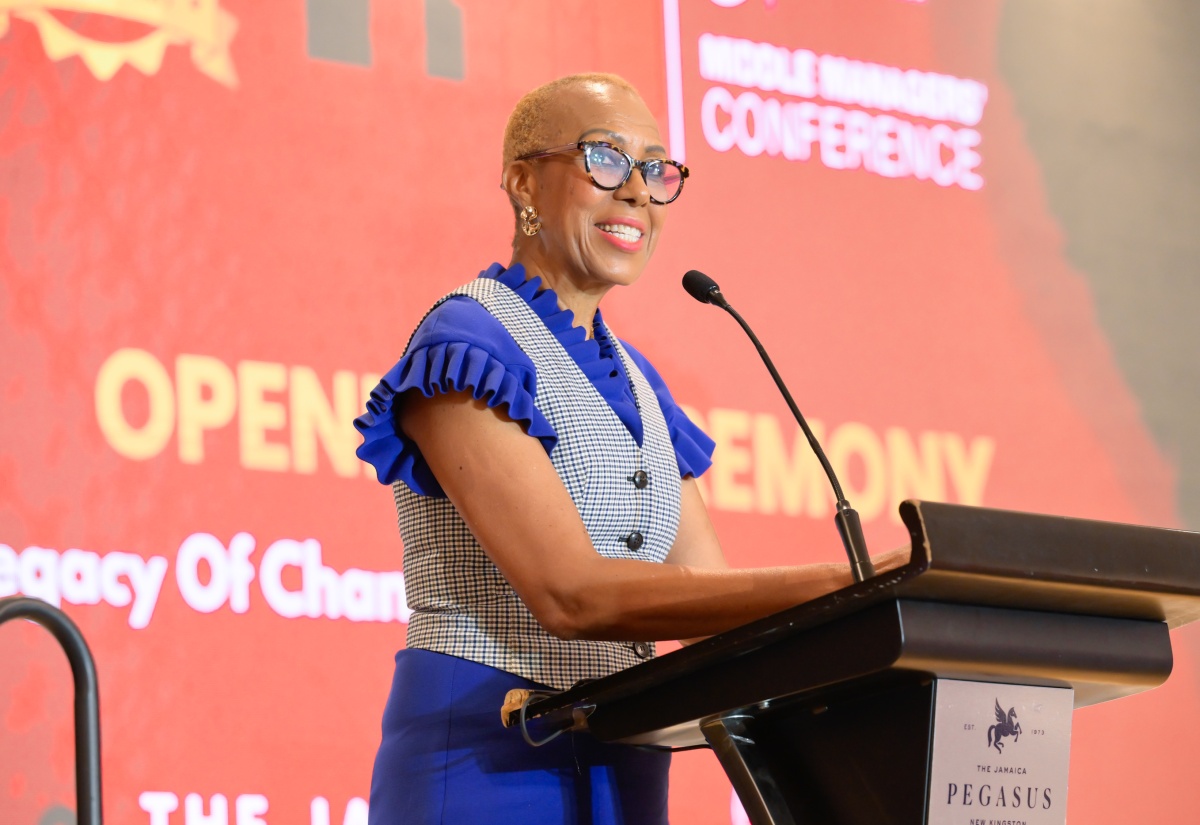It’s amazing how porous corporate board and company meetings are! Discussions and decisions taken at supposedly confidential meetings are often fodder for the uptown cocktail circuit before they spread along the corporate grapevine. A number of analysts and business executives consulted, expressed no surprise at the apparent dismissal of Rodney Davis. As a matter of fact, many expressed surprise at the length of time that it took the Cable and Wireless Jamaica Board.
It appears that the proverbial writing was on the wall from last year and everyone knew except the 40-year old Jamaican who, born off Hagley Park Road in Kingston, spent most of his life in Canada before destiny finally brought him home in July 2005. Or, did he know? Was he negotiating his way out but ran out of time and space to negotiate with the publication of the company’s last quarter financials? The decision to terminate was widely rumoured last year but was apparently stayed, due to the instability of Cable and Wireless Jamaica (C&WJ).
However, published comments from new CEO Phillip Green seem to support the view that Davis might have been negotiating his departure. Green is reported to have said that “This was discussed with Rodney some time ago, and by mutual agreement it was deemed that a change of leadership was needed. I must say here that Rodney has done a fantastic job over the last couple of years in lifting the profile and image of C&WJ,”
Obviously not good enough to keep him until his contract expired.
In supporting Green’s comments, Company spokesman and Vice- President for Corporate Communications and Corporate Affairs Errol Miller told The Gleaner’s Wednesday Business that it was agreed that new leadership was required. “Rodney has agreed with the Board that a change in leadership is needed to take the Company in a new dimension.”
Last September, a year into his tenure, Davis and his bosses dismissed the rumours and insisted during a conference call that the young CEO would remain at the helm for the long haul.
“I would be the person who would tell Rodney that you only have two years,” said C&W Panama CEO, Chris Hetherington, who is also head of Cable and Wireless in the Caribbean. “I haven’t done that. On the contrary, I have said to Rodney, ‘it is a great business in Jamaica with a lot of potential; turn it as fast as you can.’ ”
Davis is also published as saying that he did not foresee leaving the beleaguered company before 2009. “We have a long-term incentive plan to maximise benefits to our shareholders by 2009. I wouldn’t see a horizon that ends before that … certainly not during my tenure,” he said.
And so, corporate Jamaica tongues were set wagging at Cable and Wireless International’s announcement that Australian Phillip Green had replaced Rodney Davis as CEO of its Jamaican operations with immediate effect. Not the news so much, but the way it was done. The late afternoon announcement left no doubt that Davis was sacked, but when questioned, Green said the change was made to strengthen the firm’s management and profile. This apparently could not have been done with Rodney around.
Executive Fallouts
Davis becomes the fourth CEO to depart the company since 2003. His sudden departure is an ongoing spate of executive fall out going back to Errald Miller, the longest serving CEO in the last fifteen years. Over the past seven years C&WJ has had four CEO’s, three prior to Davis; namely Errald Miller, Gary Barrow, Jacqueline Holding and Davis – and now Green – the fifth. Jacqueline Holden stayed in the job for only 10 months, succeeding Greg Barrow, who left in 2003. Davis took over from Holden.
Over the last three years, C&WJ has lost at least 23 senior managers, some either being shown the door or deciding to quit while they were ahead. These include chief financial officer Mark Thompson – now at Michael Lee Chin’s Advantage Insurance – and his deputy, reportedly let go last year. Insiders say they were part of a team of close friends installed by Rodney when he took over as CEO.
But by far the most visible and turbulent department has been Marketing. None of the Vice Presidents of Marketing have so far been able to keep their jobs for more than one or two years, and current head of marketing Stephane Lecuyer, another of Rodney’s hand picked associates, is rumoured to be under very close watch. Stephane took over the top marketing position late last year when the highly controversial Grant Mercer stepped down under very cloudy circumstances. Other senior marketing casualties in the recent past include Sandra Bodden, now at Anbell Media; Patrick Gillings who has since gone into his own business with fellow business partner Robert McCook; Collin Smith migrated to Canada with his family to take up a lucrative marketing position; Jacqueline Knight-Campbell, who has gone back to her very successful consulting business; David Burton who went to Wysinco. LLoyd Pusey who joined from RJR is also reported to be leaving. There’s no word on the whereabouts of Tamara Warden and Rowan Wade has recently joined MiPhone as Marketing Vice President.
Marketing Blunders
A number of marketing and advertising professionals are of the opinion that there’s a perception that C&WJ always seems to be following Digicel, the Irish company that literally knocked them into the #2 position in the mobile market, and their main nemesis. According to these professionals, C&WJ sought to out do, or compete directly for market share. Digicel on the other hand, seemed to deliberately ignore what Cable and Wireless was doing and focus on what was required to grow its business. If true, this strategy has worked and has left the former monopoly with many failed and/or questionable campaigns and, even managing to offend many Jamaicans in one particular campaign.
It’s very hard not to compare the two marketing strategies:
“They just failed to get the marketing strategy right, a typical example is walking away from Sumfest, a very successful event and went with Sunsplash. A big mistake that has reportedly cost them dearly and for which they are still paying for according to those close to the situation. How they could have done that is beside me. Sumfest was big with the under 35’s demographic a sizeable portion of the Jamaican population and a very profitable market segment especially for mobile services. Sunsplash was off for too many years for this demographic to even remember, other than to hear their parents and grand parents talk about when they use to go back in the 80’s. Many of these under 35’s are too young to remember or even experience Sunsplash. And that’s whom they were targeting. Big mistake”, commented one Entertainment Marketing executive.
An advertising executive said that he couldn’t recall a single C&WJ campaign that resonated –“well, maybe except one – Switch On. This for me was their best and most impacting campaign, but rather than build on the momentum developed they dropped it and went on to something else. I don’t even remember what they went to. The BMW promotion done a few years ago went bad also and had to be re-drawn, this was done very quietly, and the car handed over with no coverage. There was also a ‘pimp my ride’ type promotion done a year or so ago, but no follow-up. Nobody knows who won, and how the car now looks. Lost opportunities. I’m sure there are others but I cannot recall them at the moment.”
In agreement, another ad executive weighed in with her own perspective: “Pressa was a good campaign and had some potential. However a number of people I have spoken to seem to agree that a taxi man was not aspirational (sic) and identifiable with the young mobile market segment and failed to gain the desired traction. I am also somewhat amazed that given the millions of dollars they have spent on marketing that they do not have one sustaining property that they are building on each year. Take for example Digicel and the Rising Star programme: that generates immense revenues and goodwill each year for the Digicel brand. bMobile has nothing like that. ”
Common consensus on one particular campaign, The Clown: “This apparent direct attack at Digicel and their over 1.5 million subscribers at the time, with a clown, suggesting that Digicel and the 1.5 million Jamaicans were dunces, was a big mistake. You don’t insult your market, that’s a big mistake. That campaign and promotion disrespected a lot of Jamaicans and created a negative word of mouth campaign against the company.”
A well respected Brand strategist in commenting on the methods deployed by CW&J over the last few years suggested that, “The biggest marketing blunder to date, must however be the failure of the company from inception, to effectively brand their mobile product and service, in the face of imminent and growing competition from Digicel.
“In the time that the Digicel brand has been around, Cable and Wireless Jamaica must have branded and re-branded their mobile product at least three times.
“The last and current one, bMobile, was a major gamble. According to my reliable sources Cable and Wireless was warned against using the bMobile brand name for fear of homosexual connotations. It was felt that bMobile was far too close to ‘bman’, a Jamaican reference to a homosexual. It was felt that given the heightened homophobic nature of the market, this was a big risk. In order to counteract this perceived threat Cable and Wireless went out and contracted some of the most hardened anti-homosexual dancehall performers money can buy and embedded them in the new campaign. This apparently worked.
“There was even fear that Digicel would capitalise on this and unleash a guerrilla campaign that would have blown bMobile out of the water and killed the brand and product. All it needed was a DJ singing a song about the “bman phone” and that would be the end of bMobile. But I guess Digicel was not bloodthirsty and sought to win market share like a true Irish gentleman.
“My strategic branding approach would have been to give the “b” in the brand name a meaning, Cable and Wireless is known for its signature blue, this would have been a natural association, so brand it ‘blueMobile’ or abbreviated ‘bMobile’. That, I feel, would have far more strategic benefits and something to build on. ”
Demise of the Pre-paids
Mark, a 17-year old Kingston high school graduate remarked, “You would be surprised to know how popular and prevalent the “Please call and credit me” feature is among mobile phone users, especially my school friends and those under 25. As a matter of fact, we now use it to communicate, by typing a series of numbers to send a coded message. So when we do not have credit and cannot send text message we use the please credit me to send short messages.”
According to market watchers the Homephone Prepaid product seems to have suffered the same fate as the prepaid mobile service, where many of the owners do not have credit or very little call credit on their Mobile phones.
Sale of call credit for the Homephone product, introduced by Rodney Davis in an attempt to claw back the landline residential business, has not worked out as planned. Even though customers have applied for it, they have not bought the level of call credits required to support it. Also, this type of product requires intense customer support service. It seems that C&WJ did not provide this level of service and so customer complaints were fairly high.
The installation of Homefone prepaid phones has contributed to the plunge in first quarter profits, resulting in large increases in overall expenses, which rose 13 per cent. The sponsorship of ICC World Cup Cricket also impacted on first quarter figures.
VOIP cuts into overseas call revenues
The introduction of cheap low cost international phone calls, predominantly using the voice over Internet platform (VOIP) – Megaphone for example – has also impacted greatly on C&WJ international call revenues. With the rapidly growing availability of no-cost to low rates of JA$50 per day unlimited talk, VOIP has cut deeply into international call revenues for CWJ.
Culture resistant to change
But did Rodney Davis deserve to be fired?
“It depends on how you look at the problem”, one observer commented. “Cable and Wireless in Jamaican terms is an old company and it has it ways, grown and developed over the years coming from an arrogant monopoly position, to now having to operate in a free and highly competitive market place. That culture has proven very difficult and resistant to change and has been at the heart of the company problems. Executive and staff disaffection coupled with dislike was rife in the company and a lot of people rebelled against Rodney and the changes he was seeking to impose. This made his job, and the changes he wanted to effect, difficult to put in place. This was the situation faced by all his predecessors.”
Can Phillip Green make a difference?
This seems to be the question on everybody’s mind, maybe even Phillip Green, who describes his management style as “pretty conservative”, adding that he liked listening and thinking before acting.
Commenting on his “immediate” appointment, Green was quoted in the Jamaica Observer as saying, “The Caribbean, from a Cable & Wireless International’s perspective, is very important. It is a major part of its portfolio and Jamaica’s business is a big element of that. These moves to have me come in as the CEO were made to strengthen the management and profile of Cable and Wireless Jamaica.”
Financial and business analysts spoken to have all agreed that something is wrong with Cable and Wireless Jamaica and have asked the question, will another change in CEO fix it? Many agree that things are not likely to change, at least not in the next two or even three years. But does Phil Green have this much time to turn things around? Given the past tenure of his predecessors, this does not seem likely.
Green however is of the view that, “I am also a board member of Cable & Wireless International, so this was a natural process to bolster the profile of C&WJ. It will now get the right priority and will now become a more valuable part of our Caribbean portfolio.”
What exactly is Green proposing to do that the CEOs before him were unable to achieve?
He says he wants to strengthen the Company’s position as a full telecommunications service provider. A market position they have been seeking for some time now in an apparent attempt to differentiate themselves from Digicel.
“What am I looking to accomplish at C&WJ? Reliability, a trusted partner, value for money and service excellence.”
“There are three areas we want to focus upon,” he told the Jamaica Observer. “The first is customer service. Here we want to aim for excellence. The second is servicing the needs of small-and medium-sized enterprises. The third area is repositioning and strengthening the brand image of Cable & Wireless Jamaica. We have to make this company a true full-service provider of choice, servicing corporate, small businesses and consumer customers throughout the length and breadth of Jamaica.”
Asked how he intended to counter Digicel’s dominant position in the mobile market, Green said he wanted to only concentrate on Cable & Wireless’ customers and staff, and the value proposition for those who subscribe to its services.
“I’m focussed solely upon how we do it better for our customers,” he said. “The centrepiece of our business strategy will now be delivering service excellence and real value for money to people.”
“Team behaviour and everyone pulling at the one end of the rope is absolutely critical,” he said. “My management style will be focussed around what is best for the customers and how do we provide a better service. I have been impressed by C&WJ’s response effort to Hurricane Dean. It is that kind of team effort that is going to make us strong going forward.”
C&WJ under Green’s leadership will also be offering higher Internet speeds, more value-added products, specifically wrapping together mobile, fixed and Internet services to customers.
Not The Man For The Job
Comments in official company statements suggest that C&W International did not see Rodney Davis as the man to grow C&WJ’s operations going forward. A move which will require mounting a serious challenge to players like Digicel, Flow Communications and other upstarts in the telecoms sector; not to mention Carlos Slim’s America Movil, who has now acquired Miphone, (see Businessuite Vol.8, September 8, 2007, for full story) subject to regulatory approval.
“On behalf of the Board, I offer thanks to Rodney for bringing us this far,” said Len DeBarros, Chairman of the C&WJ Board.
It’s a pity Rodney did not get a chance to fulfil his goals. “I just want to stay focussed on my goals despite the challenges and take this organisation to greater heights in the telecom sector. We want to continue being number one and maintain that position.” He said in a recent press article. Will Phil?
Over to you Phil – JUST DO IT!
IN
Insert Picture.
Phillip Green is from Brisbane, Australia and has a passion for cricket. He has worked in the telecommunications industry for almost 30 years, the last 12 principally in Asia. He spent three years working in Washington in the United States for Cable & Wireless Global.
Green, 56, is a senior Cable & Wireless executive “with more than 20 years’ experience in a variety of diverse and challenging roles” in the telecommunications industry. He has worked in Asia, the United Kingdom, the United States, Japan and Macau. Jamaica will be his first Caribbean posting. Green comes to Jamaica from the Pacific, where he has worked since 2005. He has worked in Japan and the broader Asian region since 2002.
“I know I speak for the whole board of C&W Jamaica when I say that we are pleased to have secured Phil Green for this important role,” said Barros. “His depth of global experience and proven track record will enable us to drive the business forward.”
Green will remain a director of the C&WI Board and will report directly to Harris Jones, chief executive officer of C&WI.
“We are delighted to welcome Phil into our region,” said Hetherington, CEO, C&W Americas & Caribbean. “His experience and track record will help to further advance the Jamaica business in this competitive environment.”
Hetherington also acknowledged Davis for “his efforts and achievements to date, and in particular, for the work he has done in improving the reputation of our operation in Jamaica.”
OUT
Rodney Davis (pic)
Rodney Davis returned to Jamaica from Cable & Wireless Barbados where he was Chief Financial Officer. During his tenure he has strengthened the company’s business planning process, improved the quality and integrity of financial reporting and tightened the company’s credit management, achieving considerable savings. Prior to joining Cable & Wireless, Mr. Davis, a Jamaican national, had been the senior partner in charge at Ernst & Young’s Jamaica office since 2002. In that role he was responsible for the firm’s Corporate Finance practice where he worked closely with a number of leading Caribbean organisations to develop profitable strategies for their businesses.
At the time of his appointment, Cable & Wireless Executive Director of International Businesses, Harris Jones, had said: “I’m delighted that Rodney has agreed to join Cable & Wireless Jamaica as CEO. He faces a challenging market in which we’re making progress and I know that he and his team will rise to that challenge, accelerate our initiatives in broadband and mobile and continue to strengthen our offer to customers in Jamaica.”
Len de Barros, Chief Operating Officer, Cable & Wireless Caribbean, and Chairman of Cable & Wireless Jamaica, had added: “Rodney is joining Cable & Wireless Jamaica at a crucial time. Our markets are more competitive than ever and our customers are looking for innovative products and services, great value and first class customer care. Rodney brings a strong track record forged in C&W Barbados and in the Caribbean and Canadian financial sectors. I know he will be focusing on exceeding our customers’ expectations in every area and I wish him every success.”
Davis had commented, saying, “I’m delighted to be returning to Jamaica and to be bringing my family back here. I’m joining Cable & Wireless Jamaica at a critical stage and I look forward to building the success of our business to deliver an ever improving offer to our customers.”
Harris Jones had added: “I’d like to thank Jacqueline Holding for her commitment during her time with Cable & Wireless Jamaica. Under Jacqueline’s leadership the business has focused, in particular, on our two key services; broadband and mobile. C&WJ has increased awareness of our high-speed internet service and tripled broadband penetration. In mobile we’ve broadened our offer in value-added services such as payment flexibility, ring-tones, GPRS and SMS and substantially improved the coverage and capacity of our GSM network. Jacqueline also led our initiatives in up-skilling C&WJ staff and improving customer service.”


 Businessuite Markets4 weeks ago
Businessuite Markets4 weeks ago
 Businessuite News242 weeks ago
Businessuite News242 weeks ago
 Businessuite News241 week ago
Businessuite News241 week ago
 Corporate Feature2 weeks ago
Corporate Feature2 weeks ago
 Businessuite News24 International2 weeks ago
Businessuite News24 International2 weeks ago
 Businessuite Markets1 week ago
Businessuite Markets1 week ago
 Businessuite Women2 weeks ago
Businessuite Women2 weeks ago
 Business Insights4 days ago
Business Insights4 days ago

 When Mr. Tyrone Wilson, Chairman, President, and CEO of Kintyre Holdings (JA) Limited, stepped into the additional role of Chief Executive Officer at Visual Vibe—alongside his existing portfolio—industry observers took note. His move, following the resignation of Chief Investment Officer Andrew Wildish, now consolidates strategic, operational, and governance control under one leader across the two connected companies.
When Mr. Tyrone Wilson, Chairman, President, and CEO of Kintyre Holdings (JA) Limited, stepped into the additional role of Chief Executive Officer at Visual Vibe—alongside his existing portfolio—industry observers took note. His move, following the resignation of Chief Investment Officer Andrew Wildish, now consolidates strategic, operational, and governance control under one leader across the two connected companies.
 1. Time Becomes Your Most Valuable Currency
1. Time Becomes Your Most Valuable Currency










